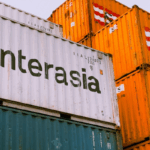In the world football arena, River Plate has reached a new peak. According to Transfermarkt, the internationally renowned statistics portal, El Monumental stadium now dominates the pantheon of stadium attendance records worldwide. With an impressive average of 84,567 spectators, River Plate has written its name into sporting history, eclipsing even other illustrious institutions of the beautiful game.
El Monumental’s meteoric rise to global preeminence is no coincidence. Since 2020, River Plate has embarked on a bold journey of innovation, with its iconic stadium at the epicenter of this transformation. Removing the athletics track and lowering the pitch have brought fans closer to the action, fostering an electric atmosphere. New lower stands in the Sívori, San Martín, and Centenario sections embrace the playing field, amplifying the symbiotic relationship between players and spectators. Replacing the old wooden seats with high-quality, FIFA-compliant folding chairs in all stands demonstrates River’s commitment to comfort and modernity. In addition, 180 boxes and 926 hospitality seats, complemented by a restaurant overlooking the pitch, elevate the Monumental to world-class status. But River’s vision goes beyond mere aesthetics; implementing Argentina’s first and only playing field with integrated aeration and air conditioning systems underscores the club’s dedication to performance excellence.
Thus, El Monumental, like the Allianz Arena in Munich for example, has become more than just a stadium: it is a statement of intent, a symbol of ambition, and a catalyst for success on and off the pitch.
River Plate’s strategy is paying off in multiple ways. As mentioned, the club leads the nation in attendance by a wide margin. In addition, sponsorship opportunities have multiplied, including the possibility of selling the naming rights to the stadium. The renovated Monumental attracts top-level talent: two FIFA world champions have joined the team during the last transfer window, and the most successful coach in the club’s history has returned. Off the field, River also stands out. With 350,000 members, the club has the second-largest membership worldwide. It dominates among Argentine teams on social networks, far surpassing its classic rival and other local competitors. All this positions River Plate as a giant in national and international football.
However, River Plate’s upward trajectory has obstacles. As we look to the horizon, we find a landscape of challenges and opportunities.
On the challenge front, River Plate must navigate a complex national environment. The controversy regarding Sports Public Limited Companies (SADs in Spanish) in Argentina contrasts with the situation in Brazil, where international companies have long invested in local clubs. This regulatory disparity could hinder River’s attracting significant foreign investment. In addition, the Argentine league’s exotic nature –with its striking 28-team structure and changing competition formats– presents a significant obstacle to long-term strategic planning and international marketing.
Economic factors are also important in River’s quest for global hegemony. Decades of peso destruction and the attendant limitations on star acquisitions, coupled with Argentina’s prolonged struggle with high inflation and slow growth, cast a shadow over the club’s financial maneuverability.
In addition, the geographic reality of the Argentine time zone poses a substantial barrier to the international broadcasting of matches, severely limiting River’s ability to expand its brand presence in lucrative markets in Europe, Asia, and Africa.
However, for every challenge, there appears to be a corresponding opportunity. The potential introduction of SADs could usher in a new era of investment and financial stability for the local league. Argentina’s economic indicators suggest a possible turnaround, with strong growth forecasts and the tantalizing prospect of dollarization. This move could revolutionize player contracts and the country’s attractiveness as a football destination.
On the sporting front, River Plate’s participation in the ongoing Copa Libertadores, the final of which could be played at home, represents a golden opportunity to consolidate its status as South America’s dominant club and catalyze the international expansion of its brand. In turn, international tours could further consolidate River’s presence in the emerging football markets of Asia, the Gulf, and Africa.
The path River Plate has charted places it on the threshold of a new era. If the club can maintain this innovative momentum, it could consolidate its continental dominance and challenge the status quo of global football. Are we witnessing the birth of a football powerhouse capable of competing on equal footing with Europe’s most prestigious clubs? The next few years will be key.
* Federico N. Fernández is a visionary leader dedicated to driving innovation and change. As the CEO of We Are Innovation, a global network of 40+ think tanks and NGOs, Federico champions innovative solutions worldwide. His expertise and passion for innovation have earned him recognition from prestigious publications such as The Economist, El País, Folha de São Paulo, and Newsweek. Federico has also delivered inspiring speeches and lectures across three continents, authored numerous scholarly articles, and co-edited several books on economics.
Photo by Vincenzo.togni on Wikimedia Commons
Source: We Are Innovation











